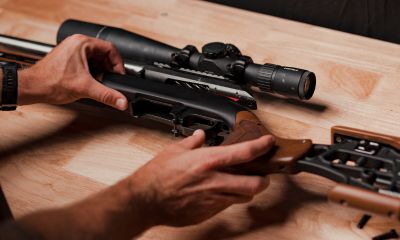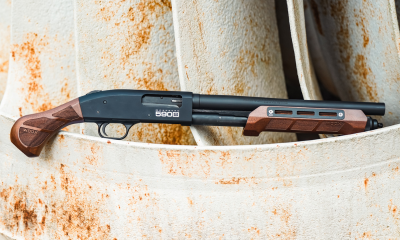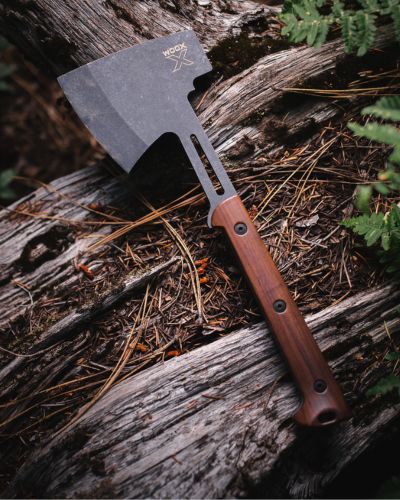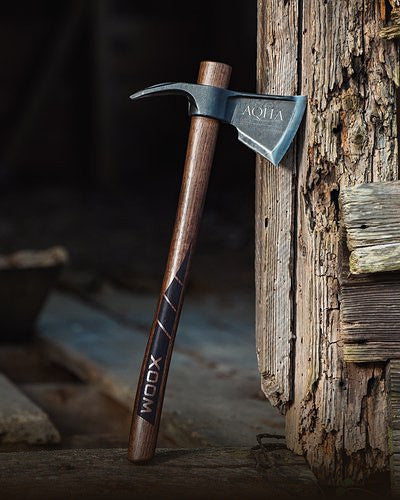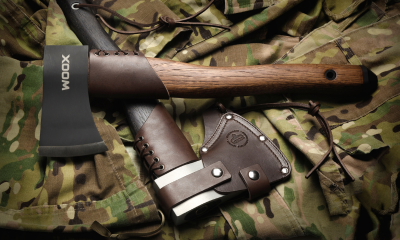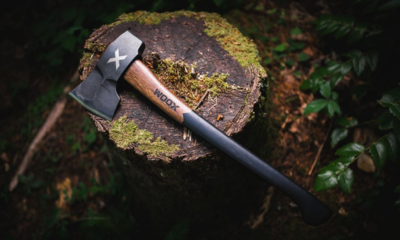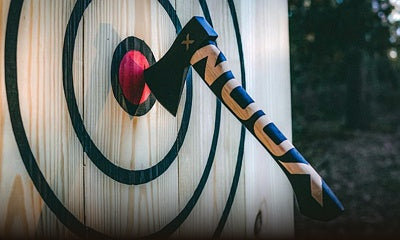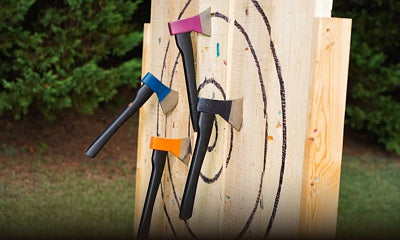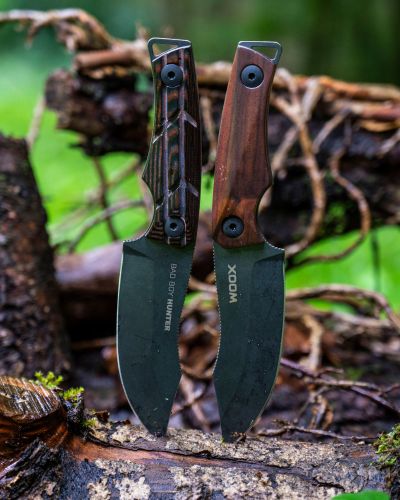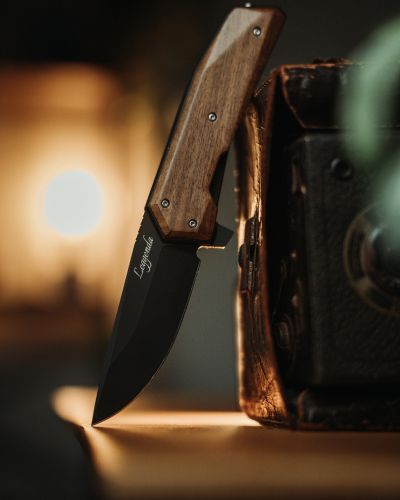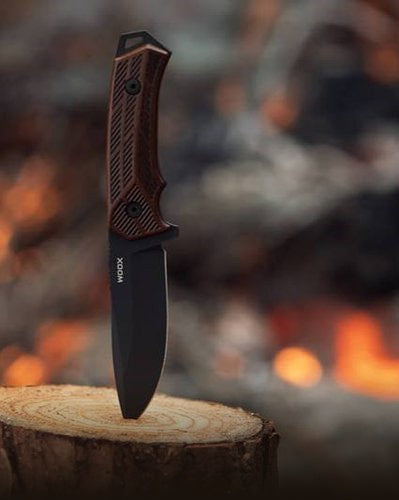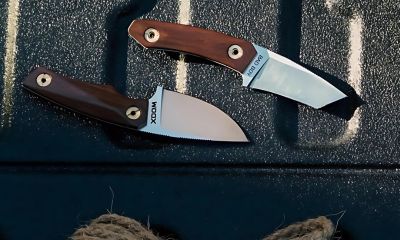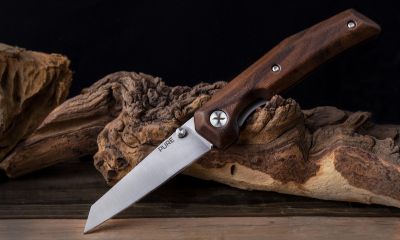
GUN PARTS
AXES
KNIVES
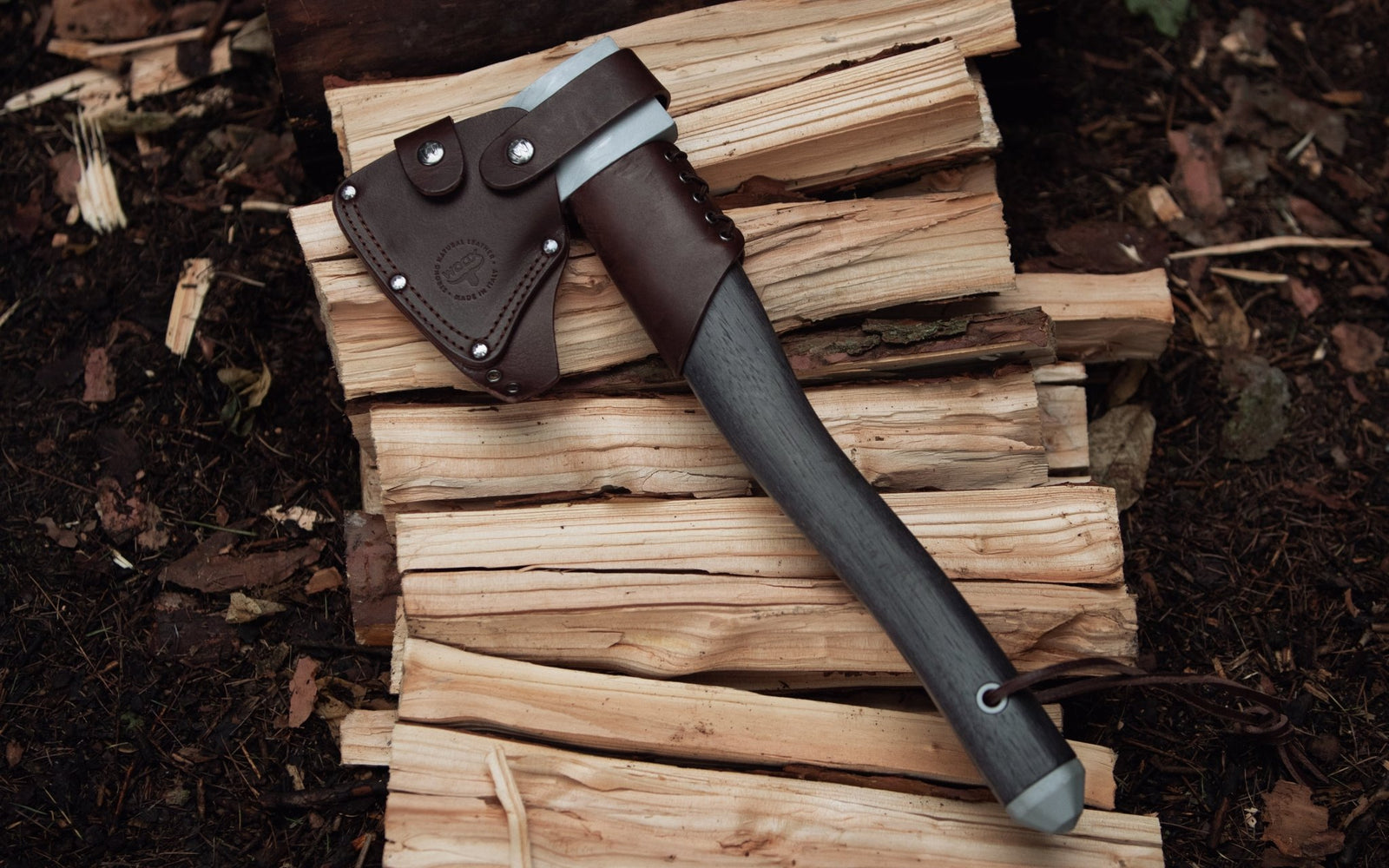
How to choose your perfect woods axe
March 01, 2021 4 min read
There’s a good reason that one of mankind’s earliest known tools is the axe. A good axe can be used to chop, slice, carve, hollow, flatten, and otherwise shape wood in all kinds of ways. We’ve come a long way from a sharp flake of stone you hold in your hand, but the principle is the same. Modern axes, though, can be very specialized tools. Here are some things to ponder when you’re looking for your next woods axe.

Axe Types
When you’re talking about general use woods axes, they come in three main types: the hatchet, the boy’s axe, and the felling axe. Let’s look at their different characteristics.
Hatchets
Hatchets are small, lightweight axes that you can use in one hand. They usually have only one cutting edge (called the “bit”) and a curved handle. The handle can be made from metal, fiberglass, plastic, or wood and is up to 18 inches long. The head is usually fixed to the handle with wedges (in the case of wooden handles) or epoxy (for fiberglass and plastic models). The head’s weight is usually between 1 and a half to two pounds.
Despite its smaller size, a hatchet can do a surprising amount of work. It can chop and split firewood, fell small trees, and remove limbs from fallen trees. If you “choke up” on the handle and place your hand just under the head, you can press it into service as a knife for doing finer work like carving and even skinning game.
Hatchets are lighter and more compact than other axes, and as a result they are easier to carry when space and weight are considerations. All this handiness comes at a price, though. It generally takes more effort to chop through bigger objects since a hatchet doesn’t pack the kinetic energy of its bigger cousins.
Boy’s Axe
The next size up is the “Boy’s Axe”. Also called a camp axe, the boy’s axe has a single bit head that weighs between two and two and a half pounds. The curved handle ranges from 18 inches up to 29 inches. It’s long enough to use two-handed, yet short enough to swing with one hand in a tight spot. You can still choke up on the handle for finer tasks, yet it can do heavier work than a hatchet. Its heavier head packs more of a punch than a hatchet. And don’t worry, guys- despite its name, a boy’s axe is perfectly suitable for us grownups to use. In fact, this is the size of axe I usually carry with me. While larger than a hatchet, it’s still light enough that it doesn’t inconvenience me.
A boy’s axe is a fine choice for beginner axe users. Since it’s lighter than a felling axe it’s easier to control, and therefore you’re less likely to hurt yourself with it.
Felling Axe
The last kind of ax we’ll discuss is the Felling Axe. As the name suggests, you use this type of axe to chop down or “fell” trees. Their handles are usually between 31 and 36 inches long. The head is anything from 3 pounds to 6 or even 8 pounds for competition axes. Felling axes can have single or even double bitted heads. Double bitted axes have cutting edges on either side of the head. This is useful. You can sharpen one side at an angle best for felling a tree and the other side can be beveled for splitting. Single bitted axes have a curved handle, and double-bitted axes have straight handles.
Felling axes are capable of much heavier work than the smaller kinds. With a longer handle and a more massive head, you can apply significantly more force to the wood. As a result, You can cut bigger trees, split more wood, and buck thicker logs. Felling axes are not as good at fine work, though, and they require more strength, endurance, and skill to use properly.

What Kind of axe should I choose?
Now you must decide on what kind of axe to get. To do that, you need to ask yourself some questions.
- What am I going to do with the axe?
- How much space do I have in my pack?
- What is my skill level?
- How much weight am I willing to carry?
Using the information above, the answers to those questions should tell you what kind of axe to take with you into the woods. For the average hiker, a hatchet will suffice. Many folks do as I do and opt for a boy’s axe due to its versatility. Pro lumberjacks take at least one felling axe with them (although I suspect most have a selection).
Regardless of which kind of axe you take, there are some things to look for.
The Head
First, make sure that the head is made from good high carbon steel. Pick an axe whose head is hung with the edge perfectly in line with the orientation of the handle. If it’s crooked, put it down and pick up another.
The Handle
Speaking of the handle, I prefer a wooden one. They are easier to replace when they break. Ash or hickory handles are the best. Look for a handle with straight grain to the wood, and with many closely spaced growth rings. Try to avoid handles with coatings like varnish. The varnish is slippery when it gets wet, and it will give you blisters faster. If I get a varnished handle, I sand the varnish off and apply wood oil to protect it. This lets me get a good grip.

So, there you have it. Now you can decide what kind of axe you need and go out and choose a good one. Let us know in the comments if this helped and tell us what you decided to get! Of course, I’d encourage you to check out the axes offered by WOOX!
Leave a comment
Comments will be approved before showing up.
Also in Woox Journal

Henry HUSH & Bravado High Grade Series: A Suppressed Lever‑Action Rig Built for the Hunt
February 06, 2026 1 min read
The Bravado High Grade Series blends classic lever action with modern optics and suppression, creating a versatile, quiet hunting rifle ready for any terrain.

Woox Edge MP5K Build Guide — Suppressed Precision & Tactical Performance
January 28, 2026 1 min read
Turn a classic HK MP5K into a next-level tactical rig with quality upgrades like Midwest Industries rails, B&T suppressor, Cloud Defensive REIN light, and EOTech EXPS3-0 optic for unmatched performance.

Bergara for Furiosa Walnut: Precision in the Backcountry
January 12, 2026 1 min read
Furiosa Walnut blends the Bergara Crest 6.5 PRC rifle with Burris Veracity PH optics, JK RPX‑30 suppressor, and protective Burnproof wrap for rugged backcountry precision.
STICK AROUND AND STAY UPDATED!
Want the latest promotions, expert tips, and a cool sticker set?
Subscribe to our newsletter today.
Spam? Not on our watch!


